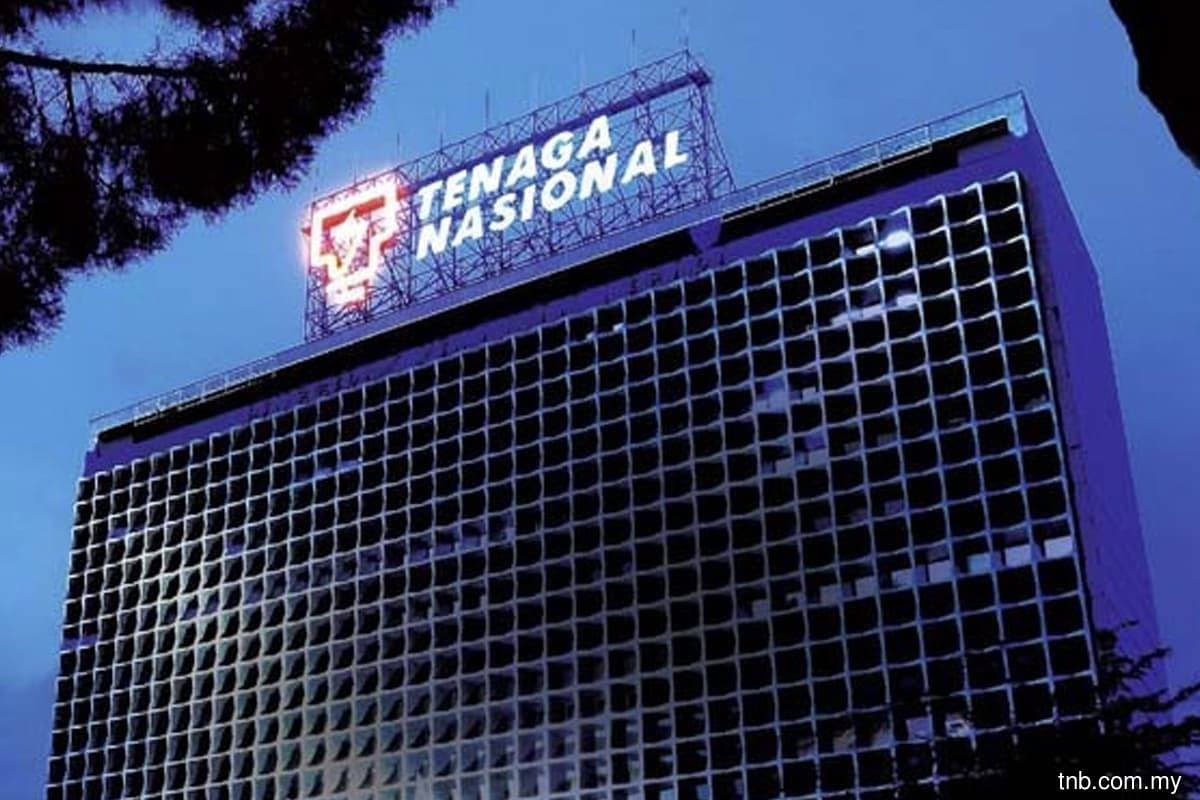
KUALA LUMPUR (May 9): Kenanga Research has upgraded its call on Tenaga Nasional Bhd (TNB) to "outperform" from "market perform", as it expects the national utility company to see lower receivables following a slump in fuel prices.
The research house said, citing TNB at a recent analyst briefing, that it expects lower Imbalance Cost Pass-Through (ICPT) receivables of RM12 billion for the second half ending Dec 31, 2023 (2HFY2023), from RM16.2 billion for 1HFY2023.
As such, Kenanga in a note on Tuesday (May 9) upgraded its recommendation on the counter, given the projected lower receivables and recent share price weakness, with a target price of RM10.
The research house noted that the receivables would be fully recovered by TNB through the ICPT surcharge or direct payment by the government.
“For instance, the RM16.2 billion ICPT in 1HFY2023 will be recovered via: i) a 20 sen/kWh ICPT surcharge from non-domestic customers, and ii) a RM10.4 billion payment from the government,” it added.
Kenanga said coal and gas prices were between 20% and 25% off their recent peaks, lowering the ICPT receivables for TNB.
The research firm believes that fuel costs for both coal and gas already peaked in the fourth quarter ended Dec 31, 2022.
It said, citing examples, that the Indonesian benchmark coal price had retraced by 20% from a peak of US$330.97/MT in October last year to US$265.26/MT.
Meanwhile, it added that the latest Department of Statistics Malaysia data showed that the price of liquefied natural gas fell 25% in March to RM46.35/mmbtu, from a peak of RM61.83/mmbtu in September 2022.
Kenanga said as ICPT receivables decline, TNB’s borrowings are likely to decrease accordingly in the coming quarters.
It noted that TNB’s borrowings rose to RM63.88 billion in FY2022, from RM51.73 billion in FY2021, as ICPT receivables surged to RM16.90 billion from RM4.78 billion over the same period.
As a result, FY2022 interest expense jumped 15% to RM4.34 billion, from RM3.79 billion previously, it added.
“Assuming ICPT receivables will be RM4 billion lower for the entire year, this will result in interest cost savings of about RM180 million to RM200 million for TNB in FY2023.
Kenanga said over a longer period, the volatility in fuel costs would have a neutral impact on TNB, as the over- or under-recovery of fuel costs will eventually be passed through to the end user or the government within a six-month time lag via the Incentive-Based Regulation framework.
It continues to like TNB for its dominant position in power generation, transmission and distribution in Malaysia, and its “defensive” earnings.
Kenanga also noted that TNB will completely phase out coal-fired plants by 2045 from a 48% generation mix currently.
“It will repower certain retired coal plants using highly efficient combined cycle gas turbines with cleaner fuel, such as gas, and hydrogen-ready technology (green technology). At the same time, the group also has an aggressive expansion plan for its renewable energy business, with an installed capacity target of about 14GW by 2050, from 0.4GW currently,” Kenanga added.